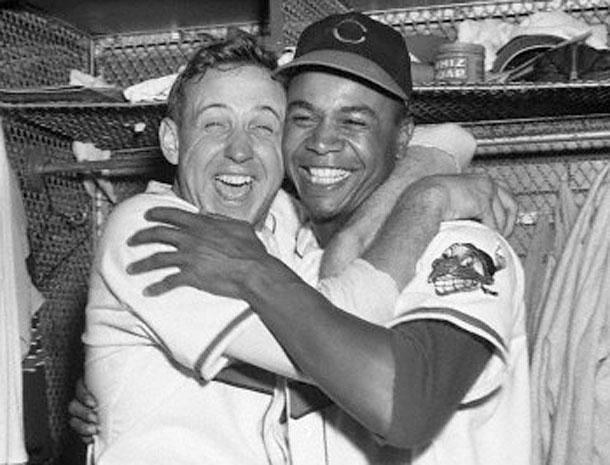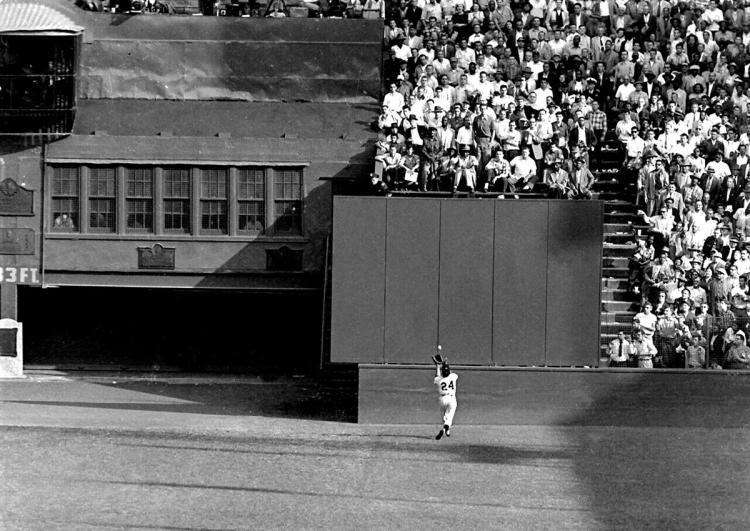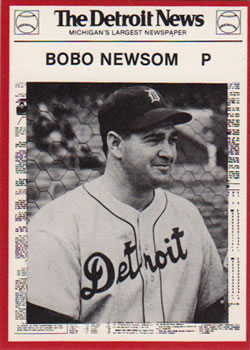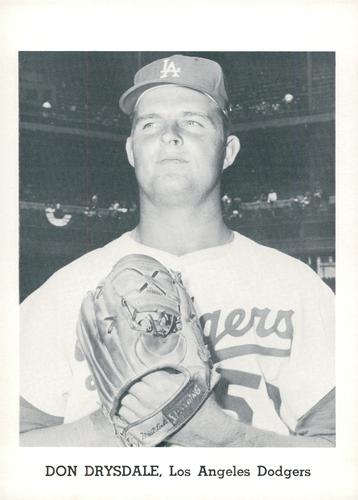October 13, 1914: Braves finish off shocking World Series upset in Game Four
 Backed by stout defense,1 Dick Rudolph easily won his second game of the quartet, throwing just 94 pitches in a complete game as the Miracle Boston Braves shocked the baseball world by sweeping Connie Mack’s Philadelphia Athletics, 3-1. Although Philadelphia finally cooled the scalding bat of Hank Gowdy, Boston captain Johnny Evers delivered a clutch two-out, two-run single in the bottom of the fifth that snapped a 1-1- deadlock, and sparked the Boston Nationals to their first 20th-century title in a postseason that no less a contemporary observer than Ty Cobb asserted “marks the crumbling of the great Mack machine.”2
Backed by stout defense,1 Dick Rudolph easily won his second game of the quartet, throwing just 94 pitches in a complete game as the Miracle Boston Braves shocked the baseball world by sweeping Connie Mack’s Philadelphia Athletics, 3-1. Although Philadelphia finally cooled the scalding bat of Hank Gowdy, Boston captain Johnny Evers delivered a clutch two-out, two-run single in the bottom of the fifth that snapped a 1-1- deadlock, and sparked the Boston Nationals to their first 20th-century title in a postseason that no less a contemporary observer than Ty Cobb asserted “marks the crumbling of the great Mack machine.”2
The Braves played superior defense, making notable plays in nearly every frame. The tone was set when the second batter of the game, Rube Oldring, “fouled to Gowdy. The high wind carried the ball back away from the plate, but Hank got under it and made a sterling catch.”3
In the second inning, Charlie Deal ran over in back of Rudolph, speared the ball with his gloved hand, shifted it to his left like lightning, and tossed out Stuffy McInnis at first while still on the dead run.”4
In the third inning Deal struck again with “a sensational stop over third base and retired Eddie Murphy by inches at first base. …” The next batter, Oldring, singled, “tried to steal on the first pitch to Collins and was retired, Gowdy to Maranville, by fully five yards.”5
With the game still scoreless in the fourth inning after one out on “a remarkable stop of Eddie Collins’ drive”6 by Evers, Frank Baker singled and got to third thanks to a single by Stuffy McInnis, but on the play “Joe Connolly returned the ball to Deal, who in a flash saw that Baker had it beaten, drove the ball to Evers and McInnis was caught trying to get to the base.”7
Boston capitalized by taking the lead in the bottom of the fourth, which began with a walk to Evers. Unlike the Braves, the Philadelphians failed to make the key plays at the key times. Following Evers, “Connolly hit a sharp grounder to Collins, who had a double play in front of him. Eddie, however, foozled the ball, allowing Evers to reach second easily. … Posssum Whitted [then] pushed a savage grounder at Collins, which hit Eddie on the foot and went for a base hit”8 that moved Evers to third, from where he scored on a groundout by Butch Schmidt.
Philadelphia’s starting pitcher, Bob Shawkey, quickly tied the score in the top of the fifth when he drove in Jack Barry with a double. But the Braves changed their tactics against Shawkey to retake the lead for good in the bottom of the same frame.9 “The feature clout … was contributed by Johnny Evers, who drove in both of Boston’s runs … on a fine young single to left field, Evers connecting when two were down with just a hit needed for Boston to break the tie and go into the lead.”10 Two runs scored on the blow, making the score 3-1 for the Braves, and that was the game’s final tally.
With the Athletics needing baserunners to keep their season alive after Boston had taken the lead, “Rabbit Maranville absolutely robbed Collins of a hit in the sixth inning, when he dashed back of second, grabbed Collins’ liner with one hand and shot it to first.”11
The Athletics would not get another man on base until the seventh inning, when Jimmy Walsh, playing center field this day in the absence of the lamed Amos Strunk, walked and went to second on a wild pitch. With none out, Philadelphia merely needed to do what the Braves had done in the fourth inning, namely, move the runner around to score a run, which would have closed the gap to 3-2. But as in the second inning of Game One against Rudolph, Barry failed to advance the runner by striking out on a pitch that again “was off the plate”;12 even worse for the Athletics, “Evers grabbed Gowdy’s throw down to second with one hand and slapped the ball on Walsh completing a sensational double play.”13
As Ty Cobb harshly but justly observed in his postgame analysis, “There was no excuse for Walsh being caught at that stage. … There was no reason for him to take chances.”14
The play seemed to demoralize Philadelphia, as its last seven batters went down in order. “Even with the chances of the Athletics fading,Herb Pennock [who had replaced Shawkey on the mound in the sixth] was sent up to bat”15 to start the eighth and grounded out to second.
Mack’s passivity and Pennock’s impatience typified the slack Philadelphia attack throughout the World Series. Rudolph remarked, “I’d rather pitch against the Athletics than the worst teams in the National and American Leagues, and I know that my average would be far better. They swung at anything I sent up to them, whether low, high or wide. They did not show any batting judgment at all.”16
Leadoff hitter Eddie Murphy followed Pennock in the eighth and skied to Mann, who “turned in a wonderful catch … getting the ball out in left centre after a hard run. It was a regular Tris Speaker catch, and Spoke, who was in the press stand … let out a mighty yell.”17
The inning ended on still a third notable effort, when Evers made “a clever play on Oldring’s short fly.”18
The final frame started no better for the Athletics, who showed “evidence of the loss of heart” as “Eddie Collins … led off in the ninth inning by striking out, the third strike being on a ball that almost hit the ground at his feet.”19
Baker’s groundout pushed the Athletics closer to their doom. Then, for a postseason that could have not looked better for the Braves, the game, Series, and season ended on a fittingly “pretty play”:20 “McInnis hit the first ball pitched. It went at Deal with great speed, but Charlie knocked it down and, after recovering, furnished the final play of the series with a fine throw to Schmidt.”21
That substitute Charlie Deal closed the World Series made sense. Boston had an unheralded team, and a backup stepped up to backstop the miracle squad to a sweep few had foreseen. “Deal held up his end in startling style and his brilliancy was in evidence just at the time when it was most required. To him went the honor of making the final assist and all throughout he handled his position masterfully.”22
With so many Braves playing masterfully, Boston captured the 1914 World Series in four convincing games.
After Game Four:
“Boston never knew a wilder baseball celebration than that which followed the fourth game. Thousands of fans swarmed around the Boston dugout, and Manager Stallings had to make a speech. Rabbit Maranville was dragged from the showers, and, half-dressed, he too spoke to the crowd from the roof of the dugout. Then the crowd paraded with the band playing ‘Tessie’ and ‘Along Came Ruth’ around the park, through the Fens, down Huntington Avenue, and to Copley Square, where the beaten Athletics were serenaded in their hotel, the Copley Plaza. There were fully 5,000 fans in the human chain, and thrust to its head were all the Braves who came in sight, especially Maranville, who needed no thrusting.” — Harold Kaese, The Boston Braves, p. 166.
This article is included in “The Miracle Braves of 1914: Boston’s Original Worst-to-First World Series Champions” (SABR, 2014), edited by Bill Nowlin.
Notes
1 The Boston Journal called this “the third, and only the third, in the 145 that have been played for world’s championships in which no errors were recorded in the score.” The fact that Game Three ended on a throwing error made Game Four stand in even sharper contrast. Boston Journal, October 14, 1914, 8.
2 Ty Cobb, “Big Mack Machine Crumbled, Says Ty,” [Philadelphia] Evening Bulletin, October 13, 1914, 10.
3 “Details of the Play,” [Philadelphia] Evening Ledger, October 13, 1914, 1.
4 “Braves Win Title; Beat Athletics 3-1; 4th Straight Game,” Boston Daily Advertiser, October 14, 1914, 8.
5 “Detail of Each Ball in To-Day’s Battle,” [Philadelphia] Evening Bulletin, October 13, 1914, 1.
6 T.H. Murnane, “World’s Championship Comes Back to Boston,” Boston Daily Globe, October 14, 1914, 6.
7 “Boston Braves Capture Title from Macks, 3-1,” Philadelphia Inquirer, October 14, 1914, 12.
8 “Evers’ Timely Sting to Centre Gave the Braves World’s Title,” Philadelphia Inquirer, October 14, 1914, 12.
9 “In the first part of the game, the Boston batters were waiting Shawkey out consistently, but suddenly in the fifth when they had him throwing over the first ball and not expecting them to swing at it, they switched and began to go after the first one that he was trying to sneak over. He had taken the Stallings bait. They had him work in the early innings. …Then they slugged him.” Ty Cobb, “Overconfidence Beat the Athletics, Cobb Says of Record Rout,” Boston American, October 14, 1914, 11.
10 Walter E. Hapgood, “Braves Now World’s Baseball Champions,” Boston Herald, October 14, 1914, 10.
11 Hal Sheridan, “Braves Win 3 to 1, Annexing Title as World Champions,” [Philadelphia] Evening Ledger, October 13, 1914, 1.
12 Ty Cobb, “Overconfidence Beat the Athletics, Cobb Says of Record Rout,” Boston American, October 14, 1914, 11.
13 “Evers’ Timely Sting to Centre Gave the Braves World’s Title,” Philadelphia Inquirer, October 14, 1914, 12.
14 Ty Cobb, “Overconfidence Beat the Athletics, Cobb Says of Record Rout,” Boston American, October 14, 1914, 11.
15 John J. Hallahan, “How the Braves Won the World’s Baseball Championship of 1914,” Boston Herald, October 14, 1914, 10.
16 “Braves’ Victory Crowning Upset of Athletic Year,” [Philadelphia] Evening Ledger, October 14, 1914, 12.
17 “Braves Win Title; Beat Athletics 3-1; 4th Straight Game,” Boston Daily Advertiser, October 14, 1914, 8.
18 T.H. Murnane, “World’s Championship Comes back to Boston,” Boston Daily Globe, October 14, 1914, 6.
19 Paul H. Shannon, “Athletics Bow to Faster Team,” Boston Post, October 14, 1914, 17.
20 Melville E. Webb, Jr., “Echoes of the Game,” Boston Daily Globe, October 14, 1914, 8.
21 John J. Hallahan, “How the Braves Won the World’s Baseball Championship of 1914,” Boston Herald, October 14, 1914, 10.
22 Ed McGrath, “Braves Win Final 3 to 1 Now World Champions,” Boston Post, October 14, 1914, 7.
Additional Stats
Boston Braves 3
Philadelphia A’s 1
Game 4, WS
Fenway Park
Boston, MA
Box Score + PBP:
Corrections? Additions?
If you can help us improve this game story, contact us.







